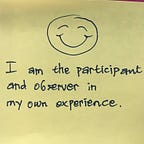Rusty metal. I can summon the smell on cue. If I close my eyes, I’ll see Dad stepping out of his old Jeep. Both man and car are covered in metal soot. I see him scrub his arms and face. The filthy water turns the sink gritty and grey. I see him brush his teeth to remove the metal taste and soot from his mouth. When I open my eyes, the pictures are gone. But the smell is still there, except that it changes to the fresh smell of Dad’s toothpaste.
Right before my birth, my dad started a foundry. He was going to name it after me, got confused when I came out as a baby girl, then thankfully, decided to name us separately. He devoted his waking hours to the foundry, loving every minute he spent on turning his blueprints into furnaces, cranes, molds and processes. He took my sisters and I on observation trips during summer breaks so we could see the foundry in action. We never liked those trips. We often got poked by scrap metal accidentally dropped on the ground. We also had to pretend we didn’t see stares from his all-male crew. Afterward, we had to spot-clean our clothes from the rust stains we got from chairs, walls and virtually anything we touched. In short, whenever Dad mused about whom to pass the foundry to one day, my sisters and I reversed gears on our sibling rivalry; we competed on the humblest reasons why we weren’t qualified.
I ended up studying Industrial Engineering in college. I was half copying my filial older sister, half following my geeky passion for efficiency and optimization. When I flunked stochastic theory tests, I blamed my sister; when I had fun with supply chain optimization, I thanked myself for choosing the field. That said, during a 6-month internship at a car manufacturing plant, it dawned on me that my body couldn’t spend 40 hours a week in an industrial workplace. The constantly shaking ground, non-stop conveyor belts, and loud machinery stressed me out as much as Dad’s foundry. I did realize that, as an international student, I couldn’t be choosy. “Hi! I am an industrial engineer but can’t work in an industrial plant. Oh, I also need an H-1B visa. Would you hire me?” I’d take Advil every day if I had to.
By God’s grace, I got a job at a software supply chain business after graduation. Honestly, I didn’t even know there was such a field. Instead of optimizing facility layouts, I got to optimize work processes. Instead of analyzing plant outputs, I got to analyze software orders. Instead of looking at plant throughput trends, I got to look at customer click trends. The best part was that I got to do all of these from a nice desk on a carpeted floor wearing skirts and open-toe sandals. I enjoyed it so much that I forgot all about my industrial ideals.
Fast forward to four years ago, motherhood had turned me into a pragmatic workhorse where passion was a luxury, and vocation was a typo. I started working on industrial platform software, not because I yearned for my industrial past, but because the job was minutes away from home. I did hear occasionally about our customers, but had a hard time connecting my world to theirs. I couldn’t see how my daily grind on cyber security, telemetry and cloud infrastructure contributed to industrial companies’ well being. My colleagues neither knew any better, nor had the energy to seek the answer. When massive changes happened last year, I contemplated to switch jobs. That’s when the rusty metal smell from Dad’s foundry came back.
I didn’t summon the rusty metal smell; it just came. It first came when my sister asked me what made me want to stay at my job at all. Then, it kept coming back. It came when I see jet engine part numbers. When I read the news about Saudi-Kuwait Partitioned Zone. When I looked up regulations for power plants. It came during all-hands, product demos or commercial calls at work. Sometimes, it came with Dad’s voice.
“I don’t need that whatchamacallit.” He was reacting to my optimization ideas for his foundry.
“Why?” I genuinely wanted to know.
“You don’t understand.”
“Teach me.”
“It’ll take forever to write down everything. Even if I did that, I doubt it’d tell me what I don’t already know. I’d rather use that time to get more loads onto the furnace. Also, Mr. Amir and I can run the whole thing with our eyes closed.”
“Yeah, but …,” I paused for better wording. “You and Mr. Amir will need vacations, no?”
“Nah, we’re good.”
The uncanny metal smell answered my questions alright, but it also gave me new questions. The good kind of questions. Questions that made me feel, see and hear Dad and my customers better. Questions that connected my yesterdays and todays — as a whole experience.
That’s when work became personal.
